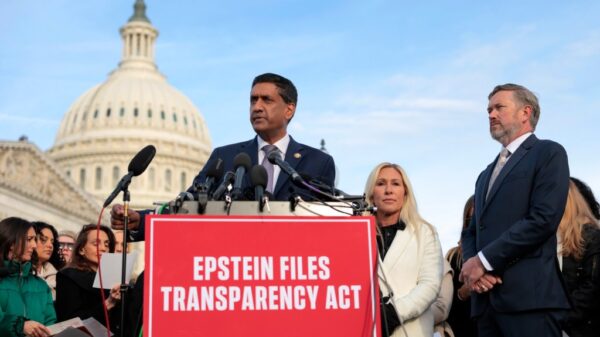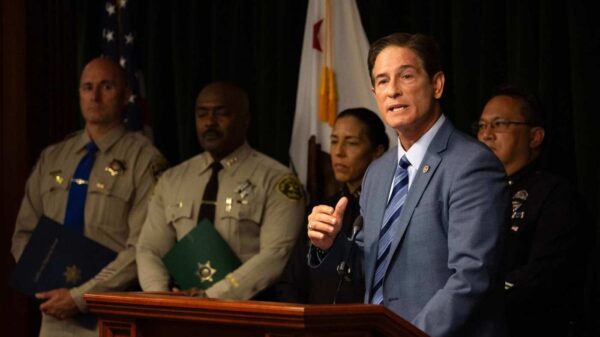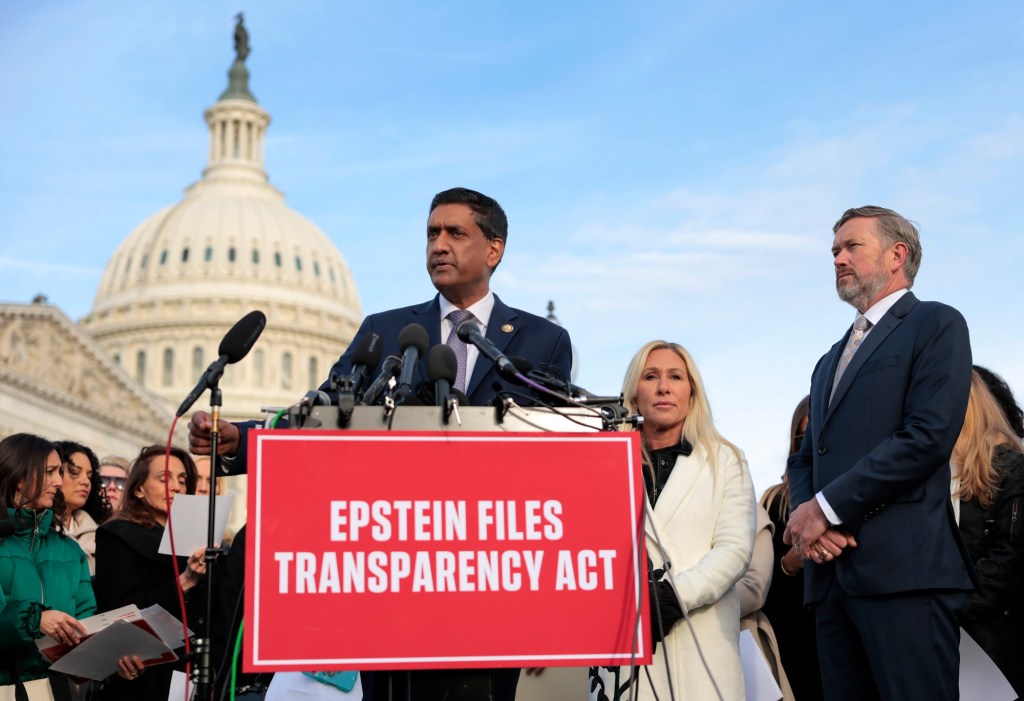Congressman Ro Khanna has achieved a significant legislative victory with the passage of his bill mandating the U.S. Department of Justice to disclose records related to its investigations of Jeffrey Epstein. The bill garnered overwhelming support, passing the House of Representatives with a vote of 427-1 and later receiving unanimous approval in the Senate. On July 7, 2025, President Donald Trump signed the bill into law, marking a rare moment of bipartisan agreement in a polarized political climate.
The passage of Khanna’s bill is noteworthy not only for its content but also for the political maneuvering behind it. Khanna, a Democrat representing Fremont and parts of Silicon Valley, formed unlikely alliances with several Republican lawmakers, including Thomas Massie from Kentucky and Marjorie Taylor Greene of Georgia, to push the bill forward. This coalition has sparked tensions within the Republican Party, particularly given Trump’s historical association with Epstein, which complicated the approval process.
Taylor Greene, previously a staunch supporter of Trump, has indicated that this bipartisan effort marks a significant rift in the Republican base. Following Trump’s critical remarks, where he labeled her a “disgrace” and a “traitor,” she expressed concern for her safety, stating, “The fight over releasing the Epstein files has ripped MAGA apart.” Despite these divisions, Khanna remains focused on the broader goal of transparency regarding Epstein’s connections and the powerful individuals involved.
Khanna’s determination to pursue this issue has not been without skepticism from his own party. He recounted that some Democratic colleagues dismissed his focus on the Epstein files, suggesting he was indulging in conspiracy theories. “When I initially brought it up, people would roll their eyes,” Khanna noted. Nonetheless, he believed that public sentiment around Epstein’s actions and his associates transcended political divides. As he traveled across the country, he recognized a growing demand for accountability regarding what he termed the “Epstein Class”—a reference to the affluent individuals who allegedly exploited vulnerable victims without facing justice.
The legislative journey took a pivotal turn when Massie filed a discharge petition in July, enabling Khanna’s bill to bypass a Republican majority that had been resistant to bringing the issue to a vote. This strategy highlighted Khanna’s initiative and ability to rally bipartisan support, demonstrating a practical approach to governance. Larry Sabato, founder and director of the University of Virginia Center for Politics, remarked, “Americans say they want more bipartisanship. Here’s an example of what working together across party lines can accomplish.”
Looking ahead, the implementation of Khanna’s bill raises questions about the extent of information that will be disclosed. While the bill passed, some officials, including Senator Chris Coons of Delaware, caution that ongoing investigations could limit the release of certain records. The government may cite active probes as a reason to withhold information that could potentially interfere with ongoing investigations.
Khanna, however, remains optimistic, asserting that a significant portion of the files does not pertain to current investigations. He believes it will be challenging for U.S. Attorney General Pam Bondi to justify withholding these records. “A very small percentage of the files relate to any investigations,” he stated.
As Khanna looks to the future, the question remains whether he can replicate this bipartisan success on other issues. Nevertheless, his efforts to hold accountable those involved in child sexual abuse have underscored a critical consensus: both Republicans and Democrats agree that victims deserve justice and that their abusers should not remain hidden.







































































